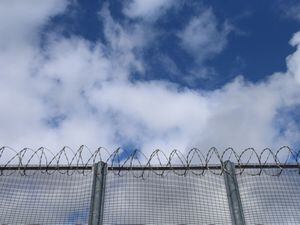‘Undue emotional stress’ may be considered in public parole hearings
.

Parole Board bosses could consider the “undue emotional stress” reforms may place on prisoners when they decide if hearings can be held in public for the first time.
Rule changes came into force on Thursday allowing case reviews to be opened up to victims and the press as part of a bid to remove the secrecy around the process which determines if inmates should be freed from jail or stay behind bars.
The prisoners in question, Government ministers and officials will also be among those who can request the case is not discussed behind closed doors.
Charles Bronson – one of the UK’s longest serving and most notorious prisoners who has since changed his surname to Salvador – is widely expected to request his latest parole hearing is heard in public now the rules have changed, having previously said he wanted his to be the first to take place.
The number of hearings where the overhaul of procedures applies may be limited at first as the criteria requires them to remain private unless parole bosses deem it is in the “interest of justice” to open up the sessions.
In deciding whether to grant a public hearing, the board’s chairman could consider factors including the wishes of victims and their families as well as any “undue emotional stress” this could have on prisoners.
A Parole Board spokeswoman said: “The new Parole Board rules make it possible for parole hearings to be held in public for the first time in some cases where it is in the interest of justice to do so.
“It is important to state that the normal position will be for parole hearings to remain in private to ensure that witnesses are able to give their best evidence and that victims are not put in a position that could lead to re-traumatisation.”
There must be a “good reason to justify a departure from the general rule”, the board said.
All parties involved in the case will be invited to give their view on whether the hearing should be in public. The board may also look at whether parts of the hearing should remain private so sensitive evidence can be given.
Factors which may be found relevant to consider when deciding whether a hearing warrants being heard in public include when there are unusual circumstances which set the case apart from others or if this may enable better understanding and debate about the parole system.
The distress an open hearing could cause to victims and relatives will also be taken into account, as will any “risks of undue emotional stress to the prisoner”, the Parole Board said.
Plans to give victims the right to observe full Parole Board hearings without them being held in public are also being tested.
A pilot with the Ministry of Justice (MoJ) is starting in England and Wales before it is set to be rolled out nationwide.
At present victims can ask to read a statement in person but are not allowed to hear the rest of the evidence presented, and journalists may observe hearings in rare circumstances but cannot report their contents.





